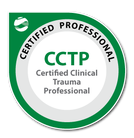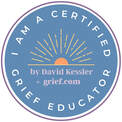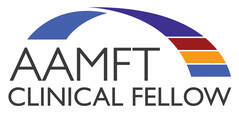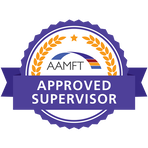|
“Self-doubt is real. Everyone has it. Having confidence and losing confidence is real, too, and everyone has been in that position.” --Venus Williams
Who do you think you are? You’re not smart enough to do that! What are you thinking to even try that? Does that internal voice sound familiar? We all have an inner critic. It is the voice of doubt and fear that arises when we venture outside of our comfort zone. The inner critic is sometimes a very vocal part that voices its displeasure. Our inner critic wants to keep us safe. It wants us to stay in the known and predictable. It wants everyone to like us and approve of us. When we reach for a dream, try something new, or make a mistake, it turns up the volume. So why is it that some people seem to move forward in confidence, while others cower under the voice of the inner critic? It all depends on how aware we are of it and how we talk back to it. It is not that people who have confidence don’t have an inner critic. They have just found ways to keep it quieter. I use the analogy that our inner critic is like our little toe. We all have one, yet we often don’t pay much attention to it. When we stub that toe, it is forefront in our mind and that is all we think about. When we are getting ready to do something new, challenging or important, it is like stubbing our toe. The inner critic activates, and the voice suddenly becomes all we hear. At any moment, we can focus our attention on our little toe and feel it. Our inner critic also has a body location. Some people feel it as butterflies or churning in their stomach, others feel it as a heaviness on their chest, while others feel a constricting in their throats. It can be almost anywhere in our bodies, but it is important to begin to notice where we feel the inner critic the most. When we can associate a bodily sensation with the voice, it gives us an important clue to start noticing that we are no longer in our authentic self and have slipped into the critic part. The awareness of the critic’s activation is the point of power we have to start noticing and talking back to it. As soon as we recognize the internal voice of our critic we can name it and make a decision. Are we going to allow it to continue to berate us, or will we choose to put on another, more compassionate part who will be able to handle the situation? Start noticing the voice of the inner critic and turn down the volume on it.
1 Comment
“All life demands struggle. Those who have everything given to them become lazy, selfish, and insensitive to the real values of life. The very striving and hard work that we so constantly try to avoid is the major building block in the person we are today.” --Pope Paul VI
We live in an unpredictable world. Just when things seem to be going well, a storm hits and things change. We all have to face the storms. They are an inevitable part of being human. But, why is that some people seem to weather the storms of life unscathed while others struggle? I often use the analogy that it is like we are on a boat anchored by the shore. When the storm comes, if we don’t have a strong anchor, we will be pulled out to sea. We need a strong anchor to keep our boat secured during the storm. So, what makes for a strong anchor? It is clarity on what we value and living in alignment with our values. Every time our words, behaviors and actions are in alignment with our core values, we add weight to our anchor. The more we live life from our values, the stronger our anchor becomes. When we forget and get busy with things we don’t value, our anchor weakens. Often, it is only when the storm hits that we notice we are without a strong anchor. We find ourselves drifting aimlessly in confusion and without direction. Every day is a new opportunity to demonstrate our values. We can choose to interact with others in ways that are in alignment with who we say we want to be, or not. When we notice that our anchor is not as strong as we would like it to be, it is an opportunity to decide how to strengthen it. Every moment is a choice point for how we want to show up with the people around us and for ourselves. Every interaction can either strengthen or weaken our anchor. The choice is ours. What can you do today that will strengthen your anchor? "For me the greatest beauty always lies in the greatest clarity." --Gotthold Ephraim Lessing
‘Mindsight’ is a term developed by Dr. Daniel Siegel to describe our brain’s ability to be aware of itself. As humans we have the unique ability to think about our own thinking. We can focus our attention internally to notice our emotions, behaviors and thoughts. We can choose to change them once they are in our mindsight. By turning our attention inward and developing an awareness of our internal landscape we gain clarity in our lives. One of the most important pieces of mindsight is the understanding of neuroplasticity. Scientists used to think that the brain stopped growing by the end of childhood and was then fixed. We now know that the brain is capable of learning and developing throughout the lifespan. As we experience the world, neurons in the brain fire and create pathways for our experiences. By focusing our attention, we strengthen existing neural pathways and create new ones. The brain, through neuroplasticity, is able to create new patterns of firing which allow previously separated areas in the brain to integrate. Through focusing our attention on our internal experiences, the brain becomes more interconnected and adaptive. Dr. Siegel outlines three components that are critical to developing our mindsight and creating clarity in our lives. They are openness, observation and objectivity. Openness is being receptive to whatever emerges as we focus our attention inward. Observation is the ability to perceive our internal experiences from a distance. It is the ability to step back from our experience to notice the experience we are having. Objectivity is the ability to discern the difference between our experience and reality. We can perceive our internal experience without being swept away in it. By utilizing openness, observation and objectivity of our own internal experience, as well as to what is going on inside others, we are able to connect in new ways. The more mindsight we develop, the more our brains change and the more clarity we begin to have in our lives. Make this the year of mindsight growth. Based on the book Mindsight: The New Science of Personal Transformation by Daniel J. Siegel, M.D. “Competition has been shown to be useful up to a certain point and no further, but cooperation, which is the thing we must strive for today, begins where competition leaves off.” --Franklin D. Roosevelt
As the parent of an ice hockey player and a lacrosse player, I have often thought about the contrast in behavior between sports and what I normally encourage in my kids. I have always encouraged them to share, but during the game, parents are yelling for them to “Fight for the puck!” I have taught my boys to avoid violence, but during the game, it is “Push him out of bounds!” There is a different aspect of our human nature that comes out during sports which I have become curious about. What is it about competition that changes behavior or are we by nature, competitive? When I think about competition I think about ‘survival of the fittest.’ Only the best team will make it to the playoffs, so it is important to take down the opponent in order to win. This led me to Charles Darwin, but I was surprised to learn that Darwin didn’t use that term at all! In his book The Descent of Man, Darwin argued that sympathy is what leads a species. Charles Darwin states, “In however complex a manner this feeling may have originated, as it is one of high importance to all those animals which aid and defend one another, it will have been increased through natural selection; for those communities, which included the greatest number of the most sympathetic members, would flourish best, and rear the greatest number of offspring.” He noted that sympathy, what we would call compassion or altruism today, is the highest moral virtue. He predicted that our human evolution will be extending compassion to all people, animals and sentient beings. He used as examples people who risked their own lives to save people they didn’t know. Darwin wrote, “Looking at Man, as a Naturalist would at any other mammiferous animal, it may be concluded that he has parental, conjugal and social instincts…these instincts consist of a feeling of love or benevolence to the object in question…such active sympathy that the individual forgets itself, and aids and defends and acts for others at his own expense.” This doesn’t sound like sports at all! Edward O. Wilson, expanded upon this in his book The Meaning of Human Existence. Wilson states, “Within groups, selfish individuals beat altruistic individuals, but groups of altruists beat groups of selfish individuals.” He explained that when we are individually selfish, we try to beat out the competition within our group. Eventually that weakens the group down to one person who is the ‘winner.’ He compared that to groups who effectively work together. A group of people who aid and defend each other strengthens the entire group. When a group of people who are altruists meets a group who is selfish, the group that functions as a team has an advantage. It does go back to the saying, ‘There is no ‘I’ in team.’ We all need to work together to accomplish our goal. While I am still working to reconcile the lack of altruism in the competition of sports teams, what I do know is that playing sports is an opportunity for my kids to work together as a team and to see the benefits of cooperation. When they are encouraging each other on the team and working together they have a much better season. Perhaps a sports team is a microcosm of our world. What would happen if we all realized that the entire human race is on the same team? By separating ourselves into small teams, whether it be by country, political affiliation, race or religion we are like the individuals that weaken a team by acting selfishly. We are weakening ourselves by separating out and missing the opportunity for altruism towards mankind. Maybe now is the time for us to evolve into Darwin’s ‘survival of the kindest’ idea. “The blow of a whip raises a welt, but a blow of the tongue crushes the bones. Many have fallen by the edge of the sword, but not as many as have fallen because of the tongue.” --Ben Sira 28:17-18
The past couple of posts have discussed the work of Brené Brown and the research she has done on shame. This week, we explore how shame manifests in the way we talk to others. As I read Brené’s work, one of the things that struck me was how powerful our words are. When we ourselves are not feeling good and are in a place of shame, an often automatic response is to shame others. Shame is a tool to control others and is often used as a form of discipline. Although we no longer use the ‘dunce hat’ on the child sitting in the corner as a form of punishment, many of the techniques and ways we discipline are equally as shaming. This post is difficult for me to write, because as I start looking back at things that I said and did as both a parent and teacher, I now realize how much shaming I did, often in the name of discipline. It is not easy for me to look back and recognize how hurtful some of the comments that I made must have been. I remember saying things like, ‘How old are you?’ and ‘Look at how nice everyone else is sitting.’ While at the time I was attempting to get my students to behave, I now understand the magnitude of the shaming words I spoke. When my son picked out an outfit that didn’t match and I argued with him to change into something more ‘appropriate,’ there was shame in implying that his choice of outfit was not good enough. Over and over I can recall times when I shamed. Increasing my awareness of the power of shame has affected the way I talk to others. I am now much more aware of whether my words are building someone up or shaming them. It is not easy though. I still find myself shaming without thinking about it until later. Being critical, judging or laughing at someone are all ways that we shame without realizing it. They are easy traps to fall into. Shame is a message that there is something wrong with me and I’m not lovable. It isn’t hard for someone to get the message of shame just from the tone of my voice, the way I look at them or my body language. We don’t even need words to shame! Becoming aware in the moment of the interaction takes practice. It is frightening to think about how many times I use shame without my conscious awareness of it. What would change if we all thought about the destructive force of shame and increased our awareness of it before speaking? Are you ready to communicate without shame? "There is nothing permanent except change.” --Heraclitus
Change. Just the word brings up various emotions for people. Some get excited for change, but often it is met with discomfort and longing for what was. When change comes our way what do we do? I use the analogy of a river with my clients. Life is like a river, constantly flowing and moving. When we find ourselves resisting change, it is like we are on a large rock in the middle of the river. It becomes comfortable on the rock. We get familiar with the scenery and sounds. While it may not be ideal, it becomes predictable. But, after a while the river rises and begins to push us off the rock. We may cling to the rock for a while and resist the changes, but eventually the water will rise enough to push us off. Our natural reaction is to get back to the rock. We swim as hard as we can, but the current of life continues to push us and no matter how hard we try, we can’t get back to the rock. Once we give in and recognize that there is no other choice, we allow ourselves to go with the flow of the river. Life isn’t about finding a rock we like and staying stuck there for the rest of our lives, it about building a strong canoe that can support us as we go down the river of life. Friends we enjoy, family support, a career we love, gratitude, compassion and joy are all reinforcements on the canoe. When we have a sturdy canoe, we know that the river may have some turbulent waters or even thorny overgrowth battering us, but it also has beautiful vistas and calm peaceful stretches. When we focus on strengthening our canoe instead of the rock we once had, we are able to go with the flow of life. We embrace change as a natural part of our own evolution. All explorers know the thrill of not knowing what is ahead and going anyway. Life is a journey, an adventure that is full of change. So, strengthen your canoe and enjoy the ride! “Darkness cannot drive out darkness; only light can do that. Hate cannot drive out hate; only love can do that.” Martin Luther King, Jr.
The news stories of the past couple weeks have been difficult to watch. From the war of words with North Korea, to the violent protests in Charlottesville, to the terrorist attack in Barcelona, we have been reminded that change is needed if we as a species wish to survive and experience peace. We are at a critical point in history and these events are bringing major issues to the forefront. People are concerned and scared about what the future will hold. Now is the time to ask if the way we have been doing things is working. This is not about who is right and who is wrong. Those are judgements. This is about asking does it serve us to threaten nuclear war on a country smaller than the size of Mississippi? Does it work to respond to hate with hate? There is one thing in common with all people who hate. ISIS, Neo-Nazis, the KKK, Kim Jong-un and Donald Trump all share one quality. They are fearful. They are scared to lose something that they value. When we look at them as extremely scared individuals who are acting out in fear, it is easier to begin to have some compassion for them. Hating them will not change them, it will only lead to more hate. I believe that all people are good at their core. It is our innate human nature to be giving and caring and loving. When people hate, it is because they have forgotten who they are. They have been engulfed by their ego and taken over by fear. When we begin to become curious about what they are fearful about, we start to understand. On that level, healing begins as we are able to go under the rhetoric and address the real issues. It is no longer working for us to hate. We are all diverse individuals sharing one planet. When we begin to honor that diversity, and look for ways to show love and compassion to those who look and believe differently, the world will be at peace. Martin Luther King, Jr. left us with many words of wisdom. Here are two more quotes from him which are just as appropriate now as when he spoke them: “Have we not come to such an impasse in the modern world that we must love our enemies - or else? The chain reaction of evil - hate begetting hate, wars producing more wars - must be broken, or else we shall be plunged into the dark abyss of annihilation.” “We must develop and maintain the capacity to forgive. He who is devoid of the power to forgive is devoid of the power to love. There is some good in the worst of us and some evil in the best of us. When we discover this, we are less prone to hate our enemies.” Are we ready to change? “Donald Trump’s a change agent. So am I.” –Ron Johnson
Politics is an area that most people have some opinion about. Whether you consider yourself an Independent, Democrat or Republican, there are issues that we each care about and we want our political parties to fight for what we believe in. Whether you like Donald Trump or not, he is currently the President of the United States. He promised change on the campaign trail and he is delivering by breaking the mold on what it means to be presidential. This is an exciting time in history. There are many issues which are pressing and they are going to require urgent action. Climate change, racism, LGBTQ rights, sexism, immigration, religious freedoms and healthcare are just a few of the hot button issues that are in the forefront of the news, not to mention the rising tension with other countries. Now, more than ever, it is important for us to look critically at how these issues affect each and every one of us. When President Trump speaks, or tweets, there seems to be a growing interest in every word. There is no doubt that President Trump is stirring something in us that is awakening. Whether you agree or disagree with what he says, it is an opportunity to critically examine what our core beliefs are. I believe that Donald Trump is the perfect person to be president at this time in history for precisely the change that he is creating. There have been over 20 large organized protests against him, including the Women’s March, which was the largest protest in American History. All across the country people are listening to what he is saying and are either defending him or opposing him. Either way, it is creating conversations. For many years these issues were swept under the rug and rarely discussed. Trump is bringing them up and forcing us to critically look at what our values are. Now, more than ever, we each need to individually decide if at our core, we agree or disagree with what we are hearing. Then it is time to talk about it. Have some honest discussions with people who not only agree with you, but those that disagree as well. For this country to change, we need clarity and we can only become clear when we challenge our prior assumptions. By talking with someone you don’t agree with and being open to hearing their point of view, it is often surprising to discover that there is more that is agreed upon then disagreed on. There are many core values that people have regardless of political party. With all of these discussions around the country we will begin to clarify what our country values. Once we are clear we can create change as the people. In order for America to be great again, we need to reclaim our identity. Our president is giving us daily opportunities to decide what is important. We have the power to create the change that the Declaration of Independence gives to us: “We hold these truths to be self-evident, that all men are created equal, that they are endowed by their Creator with certain unalienable Rights, that among these are Life, Liberty and the pursuit of Happiness. — That to secure these rights, Governments are instituted among Men, deriving their just powers from the consent of the governed, — That whenever any Form of Government becomes destructive of these ends, it is the Right of the People to alter or to abolish it, and to institute new Government, laying its foundation on such principles and organizing its powers in such form, as to them shall seem most likely to effect their Safety and Happiness.” America is a great country because of the diversity we have. It is time we honor differences of opinion and respectfully challenge prior beliefs. Conversations have the power to create change, and true change happens from the bottom up. Keep the conversations going! “It is not enough to be busy. So are the ants. The question is: What are we busy about?” Henry David Thoreau
Think for a minute about your daily routine. How often during the day do you feel rushed or overwhelmed? Is there a long ‘to do’ list that never seems to end? A typical day for most people is filled from morning to night with activities and commitments. When we compare our lives to those of our early ancestors, we have many modern conveniences that were intended to make life easier. Instead of giving us more quiet time to reflect though, we seem to fill it up with more stressors. We are bombarded with news and busyness without having time to simply relax and be still. In his Conversations With God books, Neale Donald Walsch discusses how we call ourselves ‘human beings,’ but many of us rarely take time to ‘be’ with ourselves. Instead, he says, we should be calling ourselves ‘human doings.’ It is difficult for many people to take time to just be. We tend to equate how productive our day was with how much we got accomplished. This is not to say that taking action and doing things is not important, but equally important is time to take care of ourselves. Many of my clients struggle to give themselves quiet time to just be still. For some, there is a sense of guilt that comes when they ‘waste’ time in meditation or quiet reflection. For others, there is a fear of being alone with themselves. The busyness is a distraction from having to face the demons they have avoided. To become a ‘human being’ we need to find time to be still. That ‘being’ time may be meditation or quiet reflection. It may be walking in nature or painting a picture. It is time to unplug from our busy lives and to reconnect with our essence. Psalm 46:10 says, “Be still, and know that I am God.” When we detach from doingness, we connect to beingness. If it is difficult to take time to be, this is an area to be explored. Is it a priority? If it is something that is being avoided, where does the guilt or fear come from? Seek support to explore this if necessary. Instead of avoiding that shadow, face it and go into it. How would your life change if you took time to truly be a human BEing? “When your values are clear to you, making decisions becomes easier.” –Roy E. Disney
It is easy to say that something matters to us, but when we objectively look at our day, does the way we spend our time reflect what we say we value? There are many that say exercise or self-care is important, but is it the first thing that gets cut out of our busy schedule? If our family is important, are we spending quality time talking with our children- without distractions? With all of the phones and technology it is easy to spend time together without ever making eye contact. Our devices are great tools, but we also need the balance of having real conversation, with time spent both talking and listening to each other. Research has shown time and again that it is the quality of the time that we spend with each other, which is more important than the quantity of time. Is adequate time spent on activities that promote family togetherness, if that is a value? One of the things that I notice is that many people are not clear on what their values are. It is hard to say we are in alignment with our values when we are not even sure what it is that we value. Take some time to make a list of just two or three values that are the most important, then begin to notice throughout the day which activities are in alignment with those values and which are not. Is there balance? What is one thing you can do today that is in alignment with your values? What would your life look like if you spent just a few minutes each day doing that activity? In the busyness of our world it is easy to lose sight of what we value. Getting clear on what our values are and living from those values has the power to change the way we live. Are you ready? |
Archives
April 2020
Categories
All
|
 RSS Feed
RSS Feed




